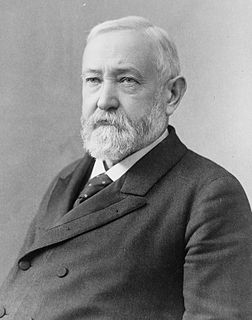A Quote by Charlotte Bronte
Laws and principles are not for the times when there is no temptation: they are for such moments as this, when body and soul rise in mutiny against their rigour ... If at my convenience I might break them, what would be their worth?
Related Quotes
These principles have given me a way of explaining naturally the union or rather the mutual agreement [conformité] of the soul and the organic body. The soul follows its own laws, and the body likewise follows its own laws; and they agree with each other in virtue of the pre-established harmony between all substances, since they are all representations of one and the same universe.
For me it is the virgin birth, the Incarnation, the resurrection which are the true laws of the flesh and the physical. Death, decay, destruction are the suspension of these laws. I am always astonished at the emphasis the Church puts on the body. It is not the soul she says that will rise but the body, glorified.
The laws are, and ought to be, relative to the constitution, and not the constitution to the laws. A constitution is the organization of offices in a state, and determines what is to be the governing body, and what is the end of each community. But laws are not to be confounded with the principles of the constitution; they are the rules according to which the magistrates should administer the state, and proceed against offenders.
If any refuse to obey the common laws and orders of the ship concerning their common peace or preservation; if any shall mutiny or rise up against their commanders and officers; if any should preach or write that there should be no commanders or officers because all are equal in Christ, therefore no master or officers, no laws nor orders, nor corrections nor punishments - I say I never denied that in such cases, the commander may judge, resist, compel, and punish such transgressors according to their deserts and merits.
I believe there are an infinite number of laws of the universe and that all progress or dreams achieved come from operating in a way that's consistent with them. These laws and the principles of how to operate in harmony with them have always existed. We were given these laws by nature. Man didn't and can't make them up. He can only hope to understand them and use them to get what he wants.
Principles are concepts that can be applied over and over again in similar circumstances as distinct from narrow answers to specific questions. Every game has principles that successful players master to achieve winning results. So does life. Principles are ways of successfully dealing with the laws of nature or the laws of life. Those who understand more of them and understand them well know how to interact with the world more effectively than those who know fewer of them or know them less well.
If the educated and influential classes in a community either practice or connive at the systematic violation of laws that seem to them to cross their convenience, what can they expect when the lesson that convenience or a supposed class interest is a sufficient cause for lawlessness has been well learned by the ignorant classes?
The policy or advantage of [immigration] taking place in a body (I mean the settling of them in a body) may be much questioned; for, by so doing, they retain the language, habits, and principles (good or bad) which they bring with them. Whereas by an intermixture with our people, they, or their descendants, get assimilated to our customs, measures, and laws: in a word, soon become one people.





































